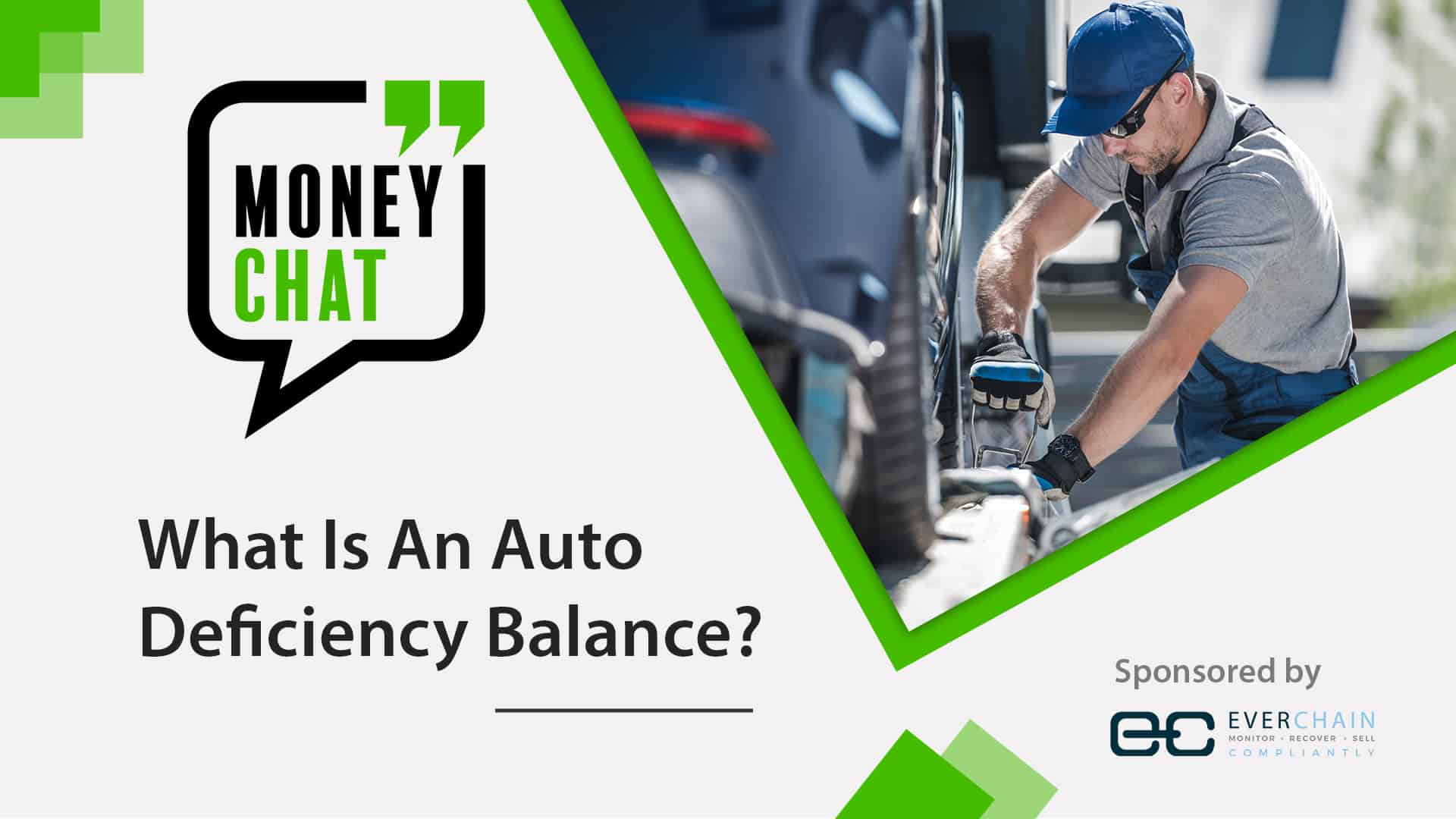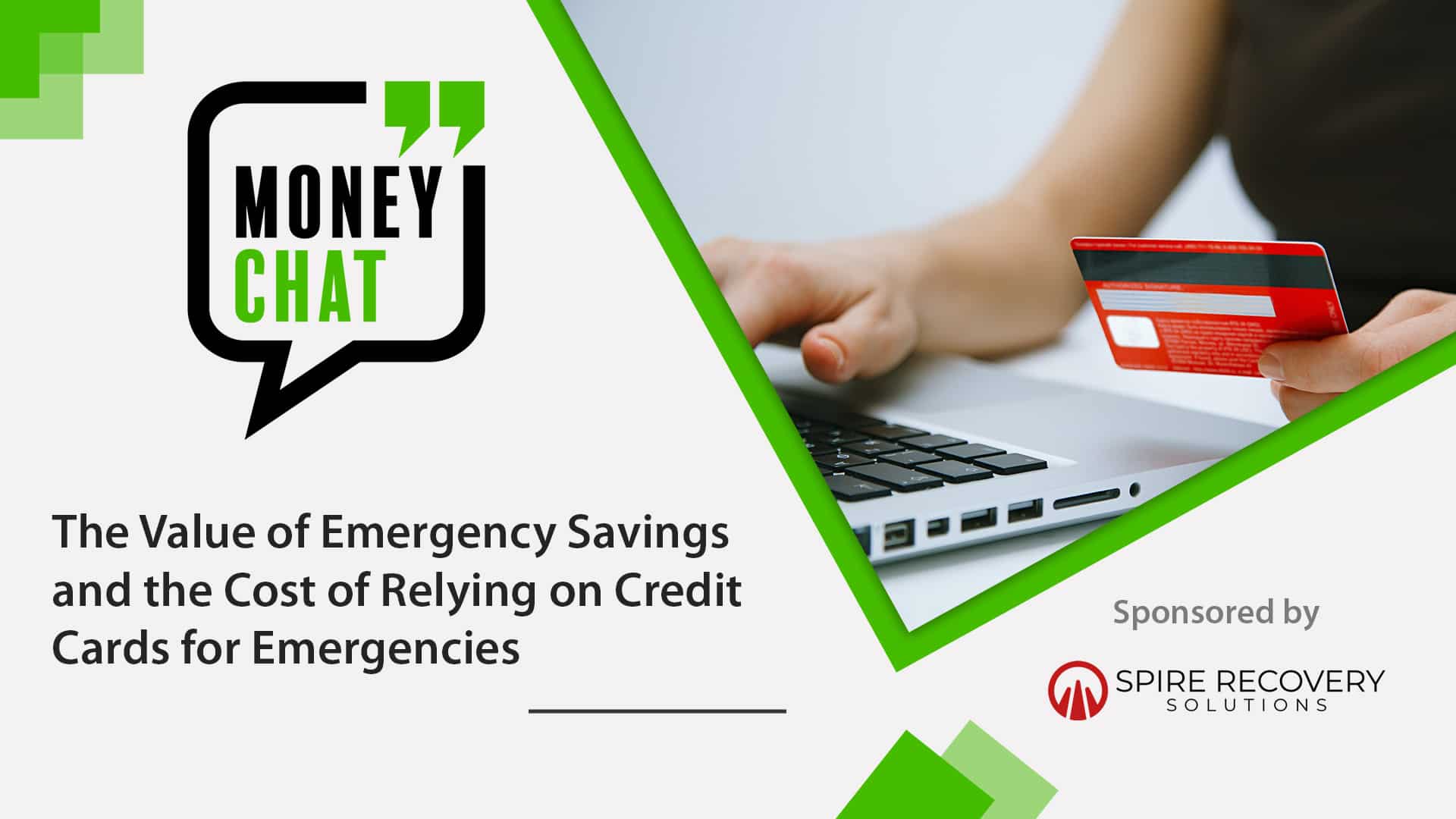
What Is An Auto Deficiency Balance?
With nearly 2.2 million vehicle repossessions every year and over $600 billion in auto loans in the United States, many consumers may be wondering what leads to repossession and why they still owe money even after their car has been taken away. This is called an auto deficiency balance.
The goal of this Money Chat is to help you understand:
- The basics of what an auto deficiency balance is
- What goes into calculating an auto loan
- How repossessions are determined and when they take place
- What happens if you still owe money after a repossession
What Is A Deficiency Balance?
A deficiency balance is the remaining amount owed on an account after a lump sum of money was paid either through collections, sales, or repossession. In the terms of an auto loan, an auto deficiency balance is what you owe to a creditor or collector after your repossessed vehicle was sold at auction and the proceeds of the sale applied to your outstanding balance.
For example:
Let’s say you owe $15,000 to your creditor and have not paid a bill for an extended period of time. That creditor may opt to repossess the vehicle and sell it at an auction. If the vehicle sells for $10,000 at auction, you will still owe $5,000 to the creditor, and it is referred to as a deficiency balance.
Deficiency Balance From Not Paying Down Your Car Loan
The most common way deficiency balances and repossessions come into play is after extended periods of unpaid bills. Vehicle repossessions typically only take place after several missed auto loan payments, and is dictated by the specific agreement you have with the lender.
Like any financial loan, an auto loan is when a consumer asks for a sum of money to pay for a vehicle, to be paid back over a period of time. Auto loans are very common in the U.S. and are approaching a one trillion dollar industry. Missing a payment on an auto loan could lead to the lender declaring your account “delinquent.” Typically, this just means that the lender will reach out and ask for the money as soon as possible—usually in a 10-15 day window with a late fee—or your loan would become “defaulted.”
A defaulted car loan can lead to a bevy of issues. With 35% of your credit score determined by payment history on borrowed money like loans and credit cards, defaulting on an auto loan could potentially lead to a decreased credit score which will impact future loans you may require. After enough time has passed, the original creditor or, whomever the creditor has sold your delinquent account to, will begin the “collateralization” process. The most common form of collecting on auto loan collateral is to repossess the vehicle used to secure the loan. A vast majority of auto loans are signed using the car as collateral against the loan, meaning the car is legally allowed to be repossessed should you not pay your agreed-upon loans.
What Leads To Repossessions?
Depending on the type of dealership, loan, and creditor your auto loan was signed with, repossessions may take place anywhere from 1day to 90 days after a missed payment. Before repossessions take place, most lenders will actively work with you to make sure payments are made fairly and on time. Speaking with your creditor to avoid repossession and work out a payment plan, a deferment plan on your loan, or even refinancing to lower the monthly payment may be the safest options.
Once your car is repossessed as collateral for your unpaid loan, the vehicle will be sold at auction. Lenders may opt to hold a public or private auction, depending on the type of vehicle or circumstance surrounding the repossession. All vehicle auctions and prices must be considered “commercially reasonable” under national law.
Receiving An Auto Deficiency Balance
After the loan goes unpaid, the vehicle gets repossessed, and a vehicle auction sells the vehicle, only then will the unpaid debt be reorganized. Like the above example, often vehicles get sold for below retail market price and below the remaining unpaid loan balance. This remaining deficiency balance is often overlooked or misunderstood. You are still liable for any unpaid balance.
Anti-Deficiency laws
About half of the states in the country have anti-deficiency laws that limit the amount that can be collected after the sale. In most states with anti-deficiency statutes, the amount owed after the sale will only be the total minus the fair market value of the property, vehicle, or items sold at auction.
Using the above example, if your unpaid loan totaled $15,000 and your vehicle was valued at $14,000, no matter what the car was sold at auction for, you would only incur a deficiency balance of $1,000.
In some states, like California, deficiency balances are all but illegal. Even if the vehicle was sold for less than the amount owed, the creditor or collection agency could not collect any more money on that debt.
Steps To Take To Avoid The Deficiency Balance Stage
Avoiding repossession and auto deficiency balances altogether should be every consumer with an auto loan’s goal. There are many built-in steps to avoid the repossession stage even if the consumer won’t make their payments on time.
1) Refinance The Loan
If someone is struggling to meet their monthly payments, refinancing their loan may be a good first step to consider. Typically, refinancing includes extending your loan period over additional months or years to lower your monthly payments. In times of lower interest rates, you could also save money by paying less interest over time.
2) Work With Your Creditor
Most auto loan creditors would rather work with an account holder than repossess the vehicle. Many creditors have emergency hardship or deferment plans if you simply need more time to make your payment, adjusting the payment due date to a later time. This will extend the length of the loan but can help consumers who have temporary financial issues. Some creditors may require a good faith payment, but most will work with customers who reach out to them before a payment is missed or late.
3) Reinstate Your Loan
Some auto loans have a “Right to Reinstatement” built into the loan agreements. What this means is that once your car is repossessed you are eligible to request that your loan and vehicle be reinstated to you, typically with included fees surrounding the repossession process.
If your loan does not have a reinstatement clause built into the loan, individual states may have reinstatement statutes that require the creditor or collection agency to allow you to reinstate the loan anyway.
4) Redeem Your Car
If you come into an unexpected surge of cash, redemption may be a viable option. What this means is that you can buy back the car and pay off the entire debt all at once before the auction takes place.
5) File For Bankruptcy
If you file for bankruptcy prior to the sale of your repossessed vehicle, an automatic stay on your assets will prohibit the lender from selling the car without obtaining court permission. Depending on the type of bankruptcy you file, this could buy you more time to gather the necessary money to get your car back or allow them to cure any unpaid balances through the bankruptcy.
Avoiding any mistakes that lead to a car repossession and subsequent auto deficiency balance can be the key difference between losing your car or filing for bankruptcy. If your car was repossessed and sold at auction, it is imperative that you understand and continue to work with the agency behind your account to avoid any further litigation.
Additional Resources
If you want to learn more about financial literacy or your rights as a consumer, please visit the Receivables Info Resources Page.
Have an idea for a Money Chat topic?
We want to hear from you! If you have a suggestion for a future Money Chat topic, please email us at [email protected].
The information contained in this article is meant to serve as general guidance for consumers and not meant to serve as comprehensive financial advice. For questions about your individual circumstance, finances, or accounts, please contact your creditor(s) and/or financial advisor directly.
Thank you to our Sponsor
EverChain is the recognized pioneer of compliant and data-driven debt sales. In 2012, EverChain developed a market-disrupting debt sale management solution, and launched the first and largest certified buyer network, establishing them as THE marketplace for consumer debt transactions. Over the past decade, EverChain has facilitated the sale and transfer of billions of dollars in uncollected debt while simultaneously infusing creditors with millions of dollars in revenue. All with unprecedented consumer-centric compliance. EverChain specializes in the following areas of consumer debt: Auto Finance, Utilities, Buy Now Pay Later, Payday Loans, Credit Card Deficiencies, Bankruptcies and Point of Sale Loans. To learn more, visit www.everchain.com or email [email protected].









